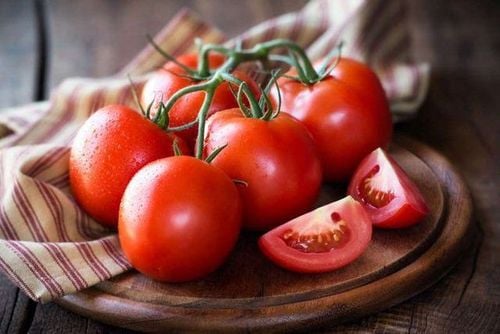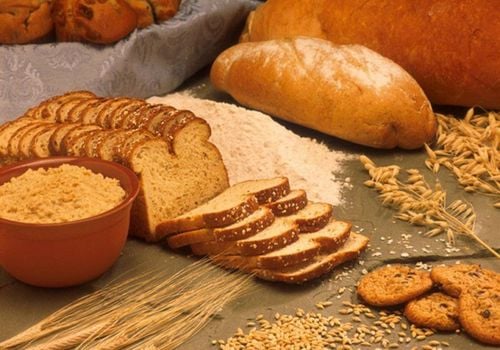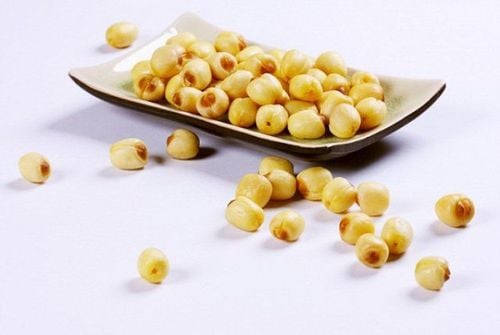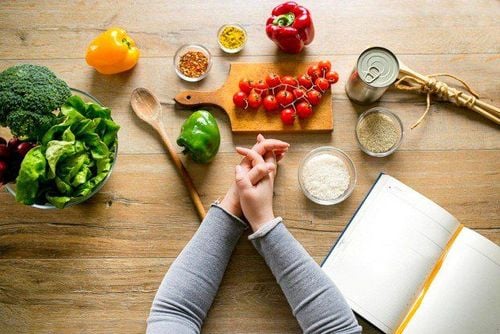This is an automatically translated article.
Breastfeeding mothers often worry about what to eat or what not to eat after giving birth to keep their baby healthy. One of the healthiest foods that you should incorporate into your breastfeeding diet is green vegetables. Most vegetables are rich in vitamins and nutrients, but some vegetables are especially recommended while breastfeeding because they can increase milk supply. So what vegetables to eat and what vegetables to eat with a lot of milk?
1. Lettuce
Lettuce is a low-calorie, water-rich vegetable that is a good addition to a well-balanced diet for a nursing mother.
Lettuce contains calcium, iron, magnesium, phosphorus, potassium, sodium, zinc along with vitamins like thiamin, riboflavin, niacin, folate, vitamins A, B6, C, E and K. Iron is really necessary for her lactating mothers and infants. As iron helps prevent anemia and cognitive effects in infants that can occur due to insufficient iron intake. Full-term babies usually have enough iron stores for up to 4-6 months. Groups of green vegetables such as spinach are a rich source of plant iron. Plant-based iron is found in plant-based foods but is generally not as well absorbed by the body as animal iron (such as meat, seafood, and poultry). However, you can improve absorption by eating foods rich in Vitamin C, such as a glass of orange juice or kiwi, with a meal or snack.
2. Tomato
Another healthy vegetable for nursing mothers is tomatoes. Tomatoes contain 94.5% water and tomatoes are a superfood rich in vitamins A, C and folic acid. Tomatoes contain a lot of antioxidants that help nursing mothers feel healthy like alpha-lipoic acid, lycopene, choline, folic acid, beta-carotene and lutein.

Cà chua là một trong các loại thực phẩm tốt cho người mẹ sau sinh con
3. Okra
If you've ever cooked okra, you know that okra can produce a viscous mucus (some call it slime) that's great for thickening soups, stews, or eating okra as a side dish. Mucus is made up of sugar residues called polysaccharides and proteins. You can remove the slime by soaking okra in vinegar for 30 minutes before cooking, then rinsing and patting dry. Okra is a rich source of vitamins A, B, C and E, thiamin, niacin and folate. It also contains minerals like calcium, phosphorus, potassium, magnesium, iron and zinc to help keep you healthy as you nourish your baby.
4. Asparagus
Asparagus is a good source of fiber, vitamins A, C, E, K, chromium and folate, which work well with vitamin B12. Studies show that folate and B12 act as brain boosters to help prevent cognitive decline, which any new mom knows is essential when it comes to caring for a newborn.
Asparagus also contains tryptophan, an essential amino acid that can stimulate prolactin, the hormone that makes milk. According to nutrition researchers, mothers who regularly eat vegetables will help their babies get used to vegetables through breastfeeding, and when weaning begins, children may be more interested in eating vegetables.
5. Spinach
Spinach is a rich source of calcium, iron, vitamins K, A and folate. Mothers should note that raw spinach should not be eaten as it contains oxalic acid, which can interfere with the absorption of essential nutrients such as calcium and iron. But when cooked, spinach helps you absorb high levels of vitamins A and E, protein, fiber, zinc, thiamin, calcium, iron, beta-carotene and lutein.

Phụ nữ sau sinh có thể bổ sung cải bó xôi vào thực đơn hàng ngày của mình
6. Kale
If you are wondering what vegetables to eat with a lot of milk, kale is a great choice. Kale is rich in vitamins A, B1, B2, B6, C and manganese, fiber, calcium, potassium, iron, magnesium, omega-3 fatty acids, phosphorus, protein, folate and niacin. Nursing mothers can eat kale raw or cooked or blend it into a smoothie to take advantage of all its nutrients. Calcium and Vitamin D are important for bone health for both mother and baby. You can get more calcium by incorporating broccoli, kale, and collard greens into your diet.
These are considered good vegetables, containing high nutritional value for mothers during breastfeeding. Therefore, mothers should consult and give themselves a scientific diet to be good for the health of mother and baby.
However, you should also note that each person is a separate individual, so vegetables and foods may be suitable for one person but allergic to another. Therefore, if you feel doubtful or insecure, you should go to a nutritionist - Vinmec International General Hospital to receive the best advice.
Please dial HOTLINE for more information or register for an appointment HERE. Download MyVinmec app to make appointments faster and to manage your bookings easily.
Reference source: webmd.com - healthline.com












